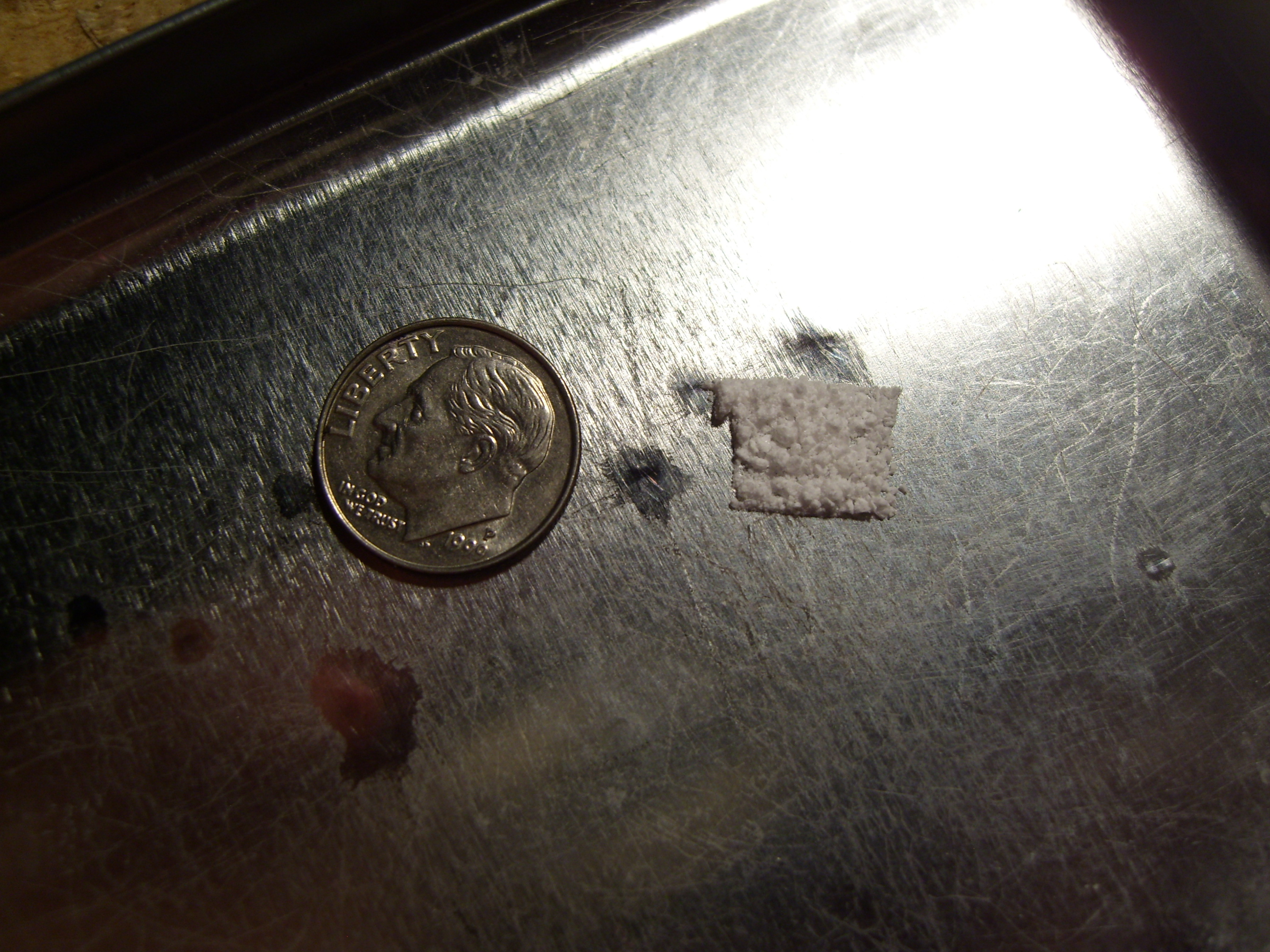Amphetamine: Difference between revisions
GrimReaper (talk | contribs) |
GrimReaper (talk | contribs) |
||
| Line 3: | Line 3: | ||
= General Information = | = General Information = | ||
Amphetamine is a CNS stimulant, producing mild euphoria and an abundance of energy. | Amphetamine is a CNS stimulant, producing mild euphoria and an abundance of energy. Amphetamines include both the specific chemical 'amphetamine' and the general class of chemicals which share structural similaries. Amphetamines generally cause strong physical and mental stimulation, keeping users awake and alert for many hours, and some amphetamines cause mood lift / euphoria. Because they increase wakefulness, various amphetamines have been used by the military, by pilots, truck drivers, and other workers to keep functioning past their normal limits. | ||
Amphetamine was discovered in 1887 and exists as two enantiomers: levoamphetamine and dextroamphetamine. Amphetamine properly refers to the racemic free base, or equal parts of the enantiomers levoamphetamine and dextroamphetamine in their pure amine forms. Nonetheless, the term is frequently used informally to refer to any combination of the enantiomers, or to either of them alone. | |||
= Dosage = | = Dosage = | ||
Revision as of 05:11, 10 July 2014

General Information
Amphetamine is a CNS stimulant, producing mild euphoria and an abundance of energy. Amphetamines include both the specific chemical 'amphetamine' and the general class of chemicals which share structural similaries. Amphetamines generally cause strong physical and mental stimulation, keeping users awake and alert for many hours, and some amphetamines cause mood lift / euphoria. Because they increase wakefulness, various amphetamines have been used by the military, by pilots, truck drivers, and other workers to keep functioning past their normal limits.
Amphetamine was discovered in 1887 and exists as two enantiomers: levoamphetamine and dextroamphetamine. Amphetamine properly refers to the racemic free base, or equal parts of the enantiomers levoamphetamine and dextroamphetamine in their pure amine forms. Nonetheless, the term is frequently used informally to refer to any combination of the enantiomers, or to either of them alone.
Dosage
Depending on purity, amphetamine dosage will vary
Oral
Light: 25-40 mg
Common: 40-75 mg
Strong: 75-125 mg
Heavy: 125-175+ mg
Insufflated
Light: 15-25 mg
Common: 25-40 mg
Strong: 40-75 mg
Heavy: 75-100+ mg
Duration
Oral
Onset: 15-30 minutes
Total: 2-4 hours
Insufflated
Onset: 1-5 minutes
Total: 2-4 hours
Effects
Positive
- Increased focus
- Abundance of energy
- Increased motivation
Negative
- Racing thoughts
- Reduced appetite
- Flushing of the face
- Increased body temperature
- Tachycardia (Elevated heart rate)
- Paranoia
- Insomnia
After effects
- Hangover
- Afterglow
- Restlessness
- Persisting stimulation (5-15 hours after last dose.)
Harm Reduction
- Avoid driving and operating heavy machinery
- Recommended time (pauses) between using the substance
Detection Times
- Blood: 12 hours
- Hair: 90 days
- Saliva: 3 days
- Urine: 1-4 days
Legal status
- Canada: Schedule I
- Great Britain: Class B
- Thailand: Category 1
- United States: Schedule II